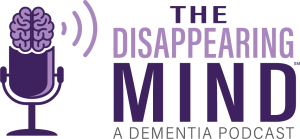We often hear complaints of memory loss among older adults and their caregivers. The good news is that there are several simple ways to improve memory that are not time-consuming or costly. The following are some steps that you can take to help preserve and even improve memory.
Adequate Sleep
Getting an adequate amount of sleep every night may not be a total cure for memory loss. However, it can actually help to trigger changes in the brain that is effective at solidifying memories. Sleep can also strengthen connections between brain cells to help transfer memories from short-term to long-term memory. This means that the new memories that older adults make will have a higher chance of being retained. How much sleep is enough? A period between 6 to 9 hours is adequate for most older adults. Something as simple as having enough sleep is an important part of improving memory for older adults.
Improved Diet
Studies have shown that foods that are high in trans and saturated fats such as steak or beef, fried foods, and dairy can cause high levels of LDL cholesterol. These foods are artery-clogging which can implicate your heart health. They may also cause damage to the brain. Changing your diet to foods that are rich in mono- and polyunsaturated fats that include nuts, vegetables, olive oil, and fish will help to increase HDL cholesterol levels. These foods can help to prevent blood vessels from getting clogged while reducing the risk of stroke and memory loss.
No Sedentary Lifestyle
A study has shown that older adults who engage in physical activities at least 1 to 3 times each week can improve their blood flow to the brain. This can help to improve their mental health as a higher amount of blood flows to the brain that is linked to memory. In addition, staying physically active will also improve your mood as it supplies endorphins that make you feel good. Physical activities will also improve appetite and provide a platform for older adults to seek socialization opportunities with people of their age group.
Mental Exercise
Learning new skills such as practicing a hobby, playing a new instrument, doing math, and performing memory exercises is extremely important for older adults. It has been found that cognitive function and memory can be improved through these activities which help to keep the mind active and in turn maintain strong memory. There are many mental exercises for older adults that you can find online.
Socially Engaged
There have been many studies that have shown a strong connection between staying socially engaged and helping older adults to maintain a good memory. Spending some time with friends and family or attending social events can help older adults to improve their cognitive functions.
Doing a Sensory Test
Sensory tests may seem like a highly clinical process but they are actually very simple and fun. Sensory tests can help to keep the brain strong and elastic, hence letting the brain maintain its connections. Sensory tests can include tasting foods and identifying the different flavors, and many others. They are easy to be done even from the comfort of your own home with simple objects.








